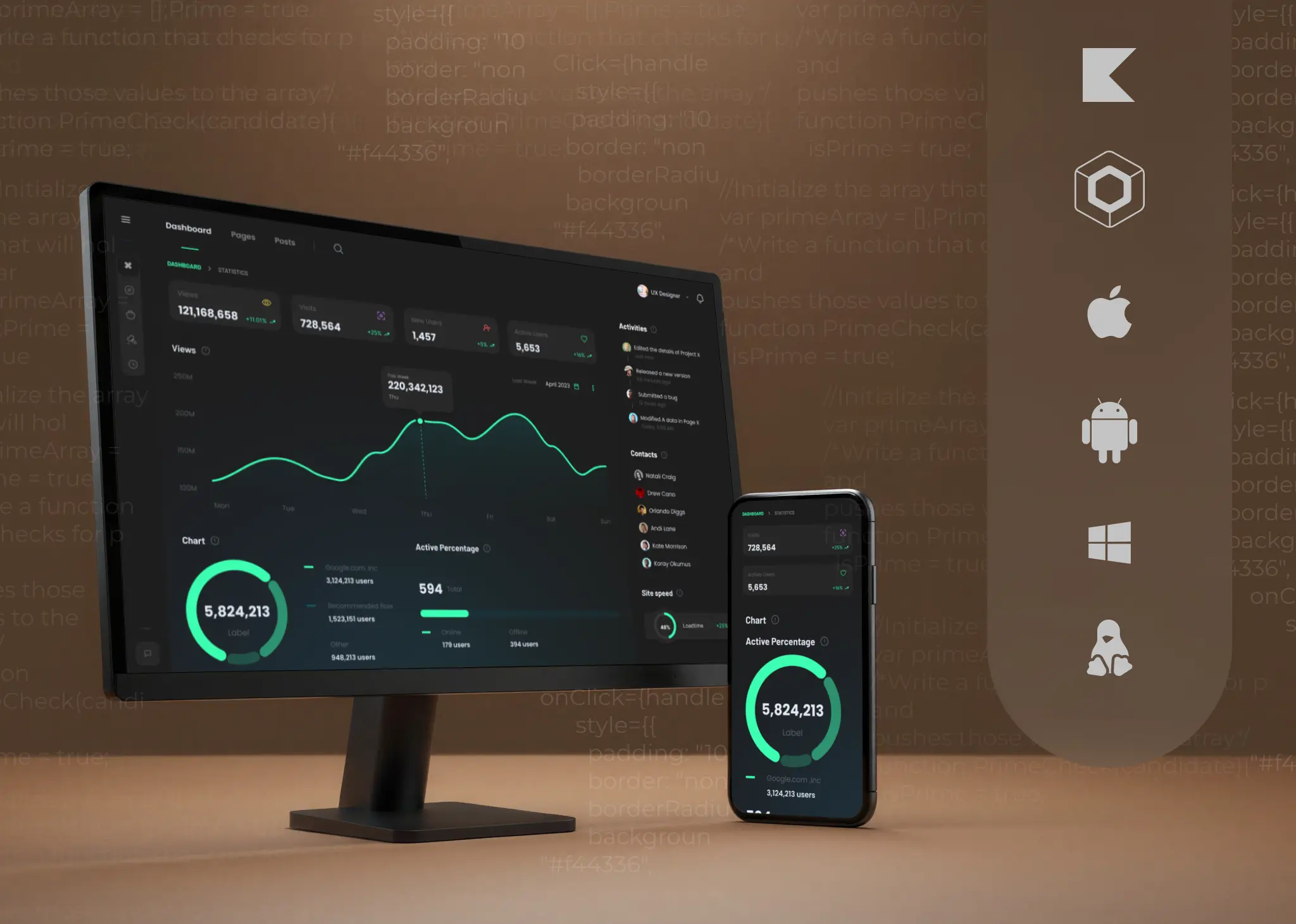Should you build a mobile app, or is a high-performing mobile website all you really need? This is one of the most common questions we get from clients, and the answer isn’t always crystal clear. Both options have their advantages, depending on your goals. Let’s dive into the details.
Mobile apps can be a great asset. They offer a wide range of features and can provide a competitive edge. But today’s mobile websites are becoming increasingly capable. With the right approach and circumstances, they can deliver a smooth user experience as well. Let’s take a closer look at what each option can offer and how to decide what’s right for your business.
Push and Personalisation: When an App Is the Right Move
One of the biggest advantages of having a mobile app is the ability to reach users directly through push notifications. With open rates up to 50% higher than email, push notifications drive engagement and can significantly boost conversions compared to the mobile web.
Mobile apps unlock access to native device features such as the camera, GPS, or biometric authentication. This opens the door for advanced use cases like identity verification via Face ID or Touch ID, or delivering personalised content using users’ location.
A mobile app is often the best choice if:
- Your customers return at least once a month
- You aim to offer a more personalised user experience
- Over 70% of your e-commerce transactions come from mobile
If your users engage with your business frequently and expect a fast, seamless, and personalised experience, a mobile app can be a real game-changer. In our experience, mobile apps typically provide a better user experience and can deliver 2–3 times higher conversion rates than mobile websites.
Speed and Simplicity: When App-Like Mobile Web is For You
Imagine taking your current website and transforming it into a smooth app-like experience. That’s exactly what many global brands like Starbucks or Adidas have done. Instead of launching a mobile app, they enhanced their mobile websites and used Progressive Web App (PWA) technology to deliver a fast, intuitive user experience directly in the browser.
With this approach, users can add your site to their phone’s home screen, just like with a mobile app. At the same time, your content remains discoverable by search engines, giving you an SEO advantage.
A mobile web is often the smarter choice if:
- Less than 30% of your traffic comes from mobile devices
- Your users make seasonal or one-off purchases
- Your product doesn’t rely on login, personalisation, native device features or frequent interaction
“We weren’t sure about building an app as it’s a big investment, and we didn’t know if the ROI would be worth it. Etnetera’s team suggested a mobile web instead, and it was the right call. Our sales went up, and our users love the experience,” says one of our e-commerce clients.
App vs. Mobile Web: The Defining Question
Still unsure? Here’s a simple litmus test:
“Would I want to open this app every week, or just once a year?”
For instance, if your customers make purchases at least once a month, the investment in a mobile app is likely worth it. Over time, you’ll see significant returns in user engagement, conversions, and customer retention. On the other hand, if your customers only make occasional purchases, a fast and responsive mobile web could serve your needs without the ongoing costs of app development and maintenance.
Thinking in Phases: A Step-by-Step Mobile Strategy
A mobile-optimised website lets you move fast, validate your idea, and start generating results without a heavy upfront investment. As your business and mobile traffic grow, and as you gather insights into user behaviour, you can confidently scale to a mobile app backed by real data.
Especially for new businesses, this can be seen as a phased approach:
- Phase 1 – Mobile Web: Quick launch, broad reach, and low barrier to entry.
- Phase 2 – Analytics & Feedback: Track behaviour, test assumptions, and gather insights.
- Phase 3 – Mobile App: Once there’s clear demand and recurring usage, offer a high-performance, custom experience.
Taking it step by step minimises risks, improves user experience, and helps you make smarter, more strategic investments.
Final Thought: It’s Always About the User
Technology should serve your users, not the other way around. So the real question isn’t just what’s technically possible, but what makes sense for your users. How do they behave? What do they expect from your brand? And how often do they return?
Answer that honestly, support it with user research where possible, and you’ll know whether it’s time to build a mobile app or optimise your mobile web instead.
Curious what we think would work best for your business? Let’s explore it together on a quick demo call.







.webp)

.svg)
.webp)

.webp)



.jpg)
.jpg)
.png)
.avif)

.avif)



























